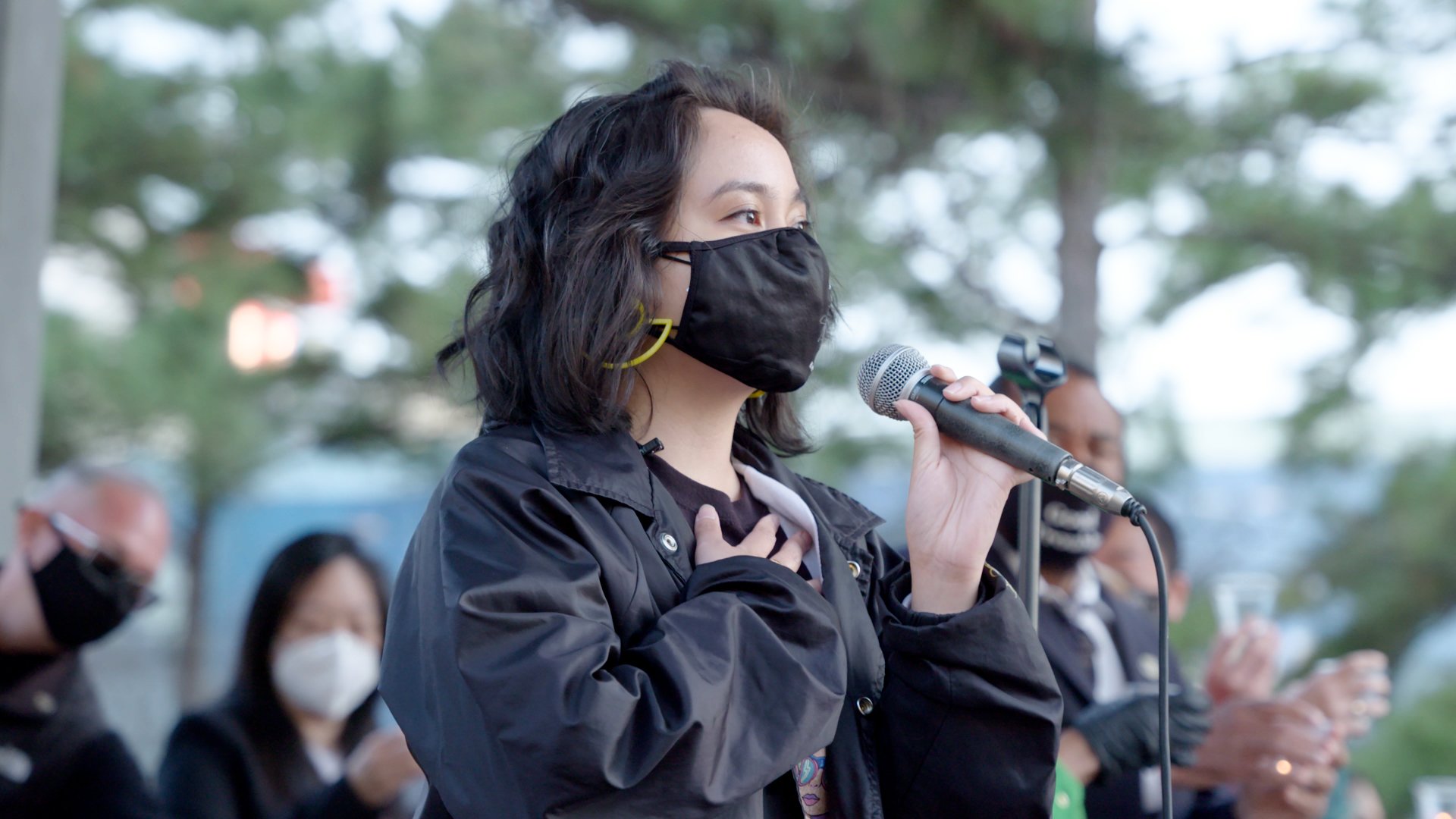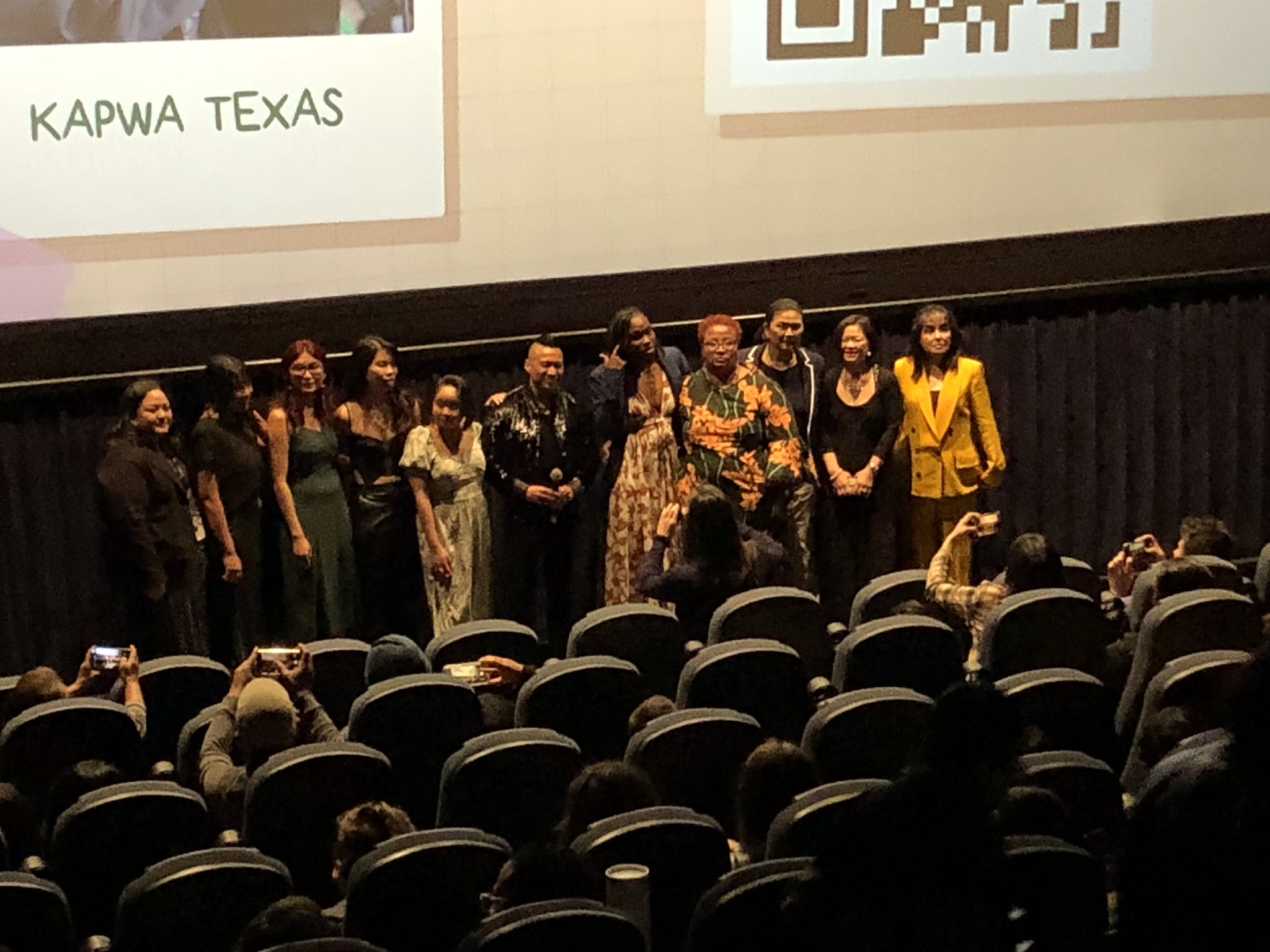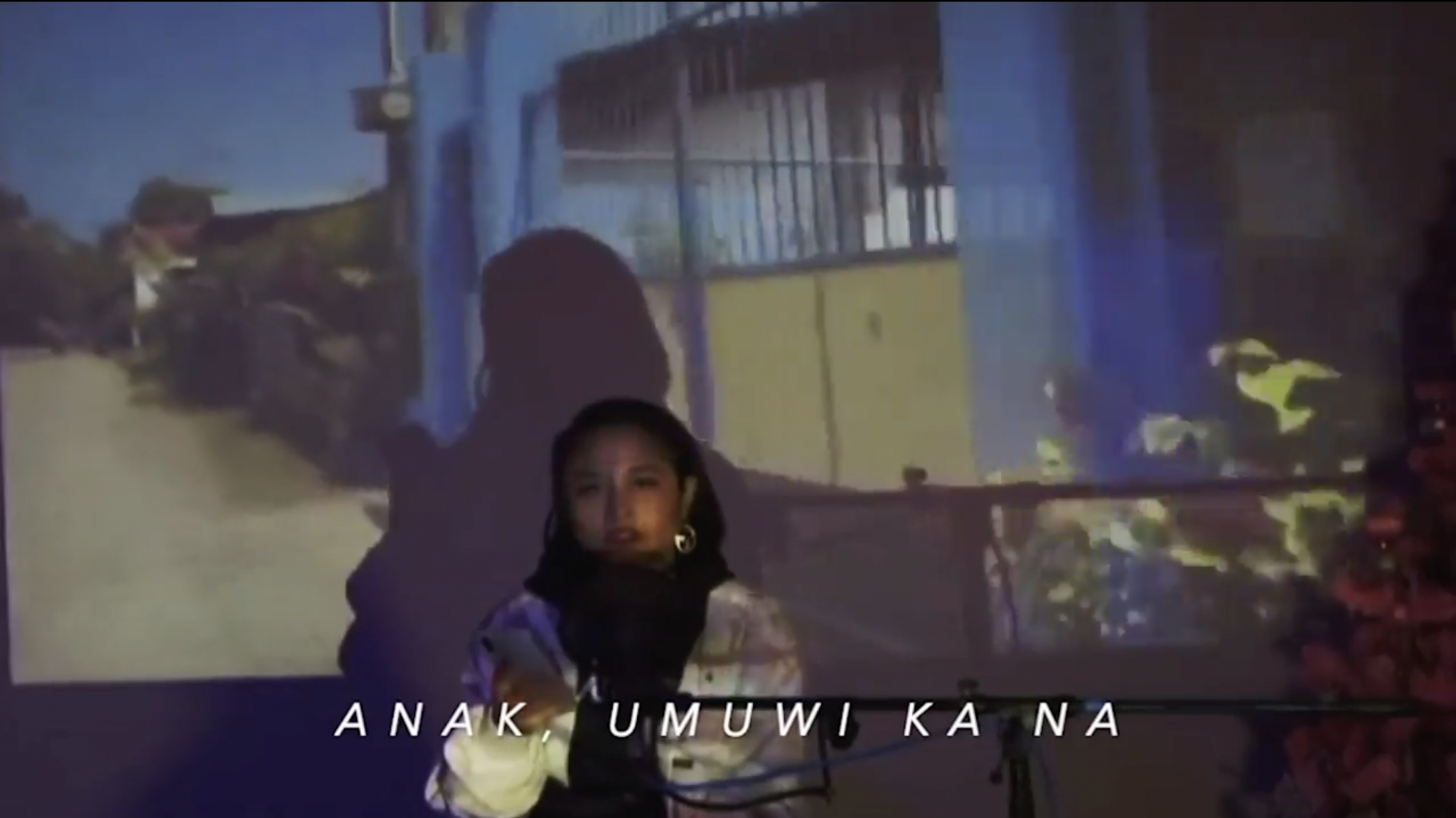Spotlight: WHO WE BECOME Pinay Perspectives And Where to Find Them
THE BIDEN-HARRIS ADMINISTRATION AND THE WORLD HEALTH ORGANIZATION (WHO) — declared the end of the COVID-19 public health emergency over a month ago. The most taxing portion of the pandemic spanned three grueling years that most of us would likely be content to forget. While suppressing memories of those days seems to be favorable, there are valuable stories to tell and keynote moments in our life that will always stay with us. Director PJ Raval displays these stories in his newest documentary, WHO WE BECOME.
WHO WE BECOME chronicles three Filipina protagonists documenting their lives throughout the early stages of the pandemic, each recording video journals on Asian/Black activism, having difficult conversations with their parents, and civic engagement. The Pinay trio navigates separate paths that embody “kapwa,” a Tagalog term loosely meaning “togetherness” or “neighbor.” To further define WHO WE BECOME, Luna chatted with director Raval, producer Cecilia Mejia, and protagonists Jenah Maravilla, Lauren Yap, and Monica Silverio. The movie begins with a static black background, displaying only the definition of “kapwa”: how we are the same, equal, and connected to our fellow human beings. It proceeds with a supercut of the pandemic’s greatest hits: social distancing, Black Lives Matter protests, anti-Asian hate crimes, and the 2020 election.
“Everything changed and — like much of the world — we pivoted,” Raval said. Raval and Mejia’s original ideation for the film focused on the intersection of clashing political ideologies and familial love through recorded conversations. Once the pandemic hit and the circumstances changed, WHO WE BECOME took on a new meaning. Raval and Mejia, who previously worked together on Raval’s previous film, Call Her Ganda, embraced current events, expanded the scope of their original narrative, and sought out those willing to share their stories of this harrowing era of our lifetime. Raval’s experience teaching film production at The University of Texas at Austin yielded him two of his three muses, providing some synergy in their instruction and direction.
Silverio perhaps embodies the film’s original idea the most. Her parents disapprove of her attending Black Lives Matter protests and suggest she stays home and prays. Her mother, a devout Catholic, misinterprets and adopts an All Lives Matter approach, but later abandons it upon understanding the Black perspective. Silverio’s conservative-leaning father fields more contention and even avoids his daughter at times when she becomes more outspoken. Yap graduated college on the cusp of the pandemic. She arrived home, moved into her parents’ house, and adorned her cap and gown in her living room. Though the virtual ceremony might have been lackluster, Yap’s parents had her friends and local police parade through their street to congratulate her. Living under her parents’ roof has its issues, such as when she disagrees with their support of the police, but her family ultimately engages in a poignant (and rare) intergenerational discussion about mental health in the Filipinx community. Maravilla reluctantly worked as an ICU nurse until Hurricane Harvey flooded her hospital. Although she aided others’ ailments, she had another calling. Once she realized George Floyd’s funeral took place in her neighborhood, she involved herself in social justice causes. Black and Asian hate crimes, including the 2021 Atlanta spa shootings, impassioned her to strengthen local Black/Asian solidarity. Maravilla is also a talented poet, whose insightful readings provide complementary narration of the film.
Raval’s film displays firsthand accounts of Filipinx and Asian American family dynamics when it’s not all ube and karaoke. Despite having adverse opinions on foundational issues (in a primarily conservative state like Texas, no less), family is king in Filipinx and most immigrant cultures. Cutting your family off isn’t a simple black-and-white decision. When Silverio’s father accused college of “brainwash[ing]” her and turning her “liberal,” she was visibly exasperated but remained determined to change his mind. Her family went on a road trip through West Texas shortly after their disagreement.
“[Change doesn’t happen] in these really big moments, but it happens in these small conversations,” Maravilla said during the Los Angeles Asian American Pacific Film Festival’s post-screening Q&A. Confronting tough conversations with firmly opinionated parents is akin to poking a hibernating bear, but the nearly always arduous task is “not impossible, especially through a lens of love.”
WHO WE BECOME’S beauty lies in its storytelling. Raval’s instruction for their vlog-style diaries lays the captivating background for the three subjects, who had no interaction during filming. Editor Katrina de Vera also employs a simple but slick technique to insert screen recordings from the protagonists’ phones or computers. Portraying their tech perspectives is a clever workaround to having limited footage and gives the audience a fly-on-the-wall view. The precise editing and story development showcase their separate but united stories that one can only describe as “kapwa” Not only does the film highlight the bond and conversations we have between each other and our loved ones, but it’s also a clear development for Filipinx creatives. Raval and Mejia have a cinematic report highlighting AAPI and LGBTQ+ voices, as do their mentees. Maravilla has a social-impact creative studio, Lualo, that released its documentary, AAPI Voices, about the “fight for Asian American ethnic studies in the K-12 curriculum in Texas.”
Yap is currently directing a feature documentary, I Need Space, about “Austin's queer nightlife scene in the importance of space for marginalized communities.” And Silverio stated that she’s been “directing music videos for local artists” but wants to get back into making documentaries.
“Growing up, most Filipino Americans were in healthcare or we were in education, where we were in [roles] that did what we were told,” Mejia shared. “Now, we’re more aware of Filipino artists telling the stories of our communities.”
WHO WE BECOME had its hometown premiere at the Austin Asian American Film Festival on Thursday, June 22.








